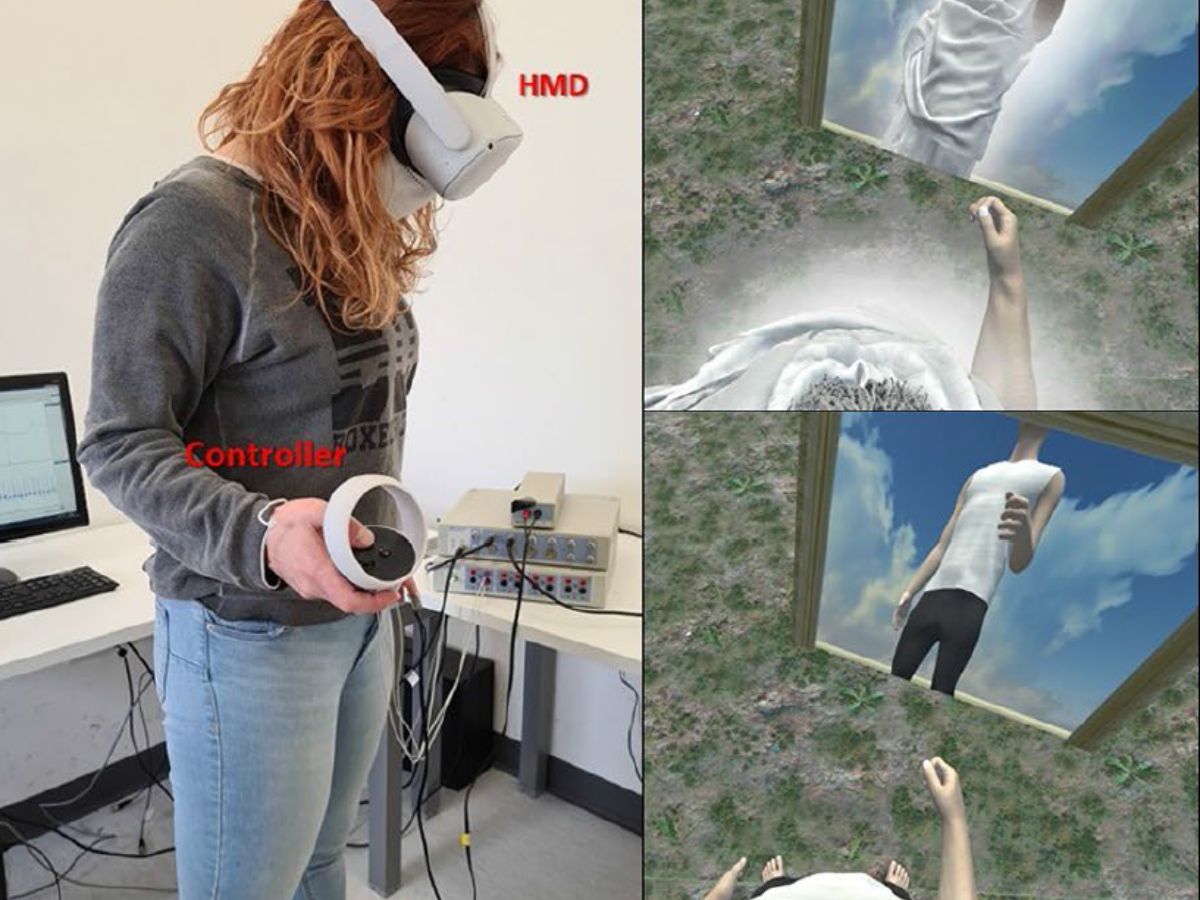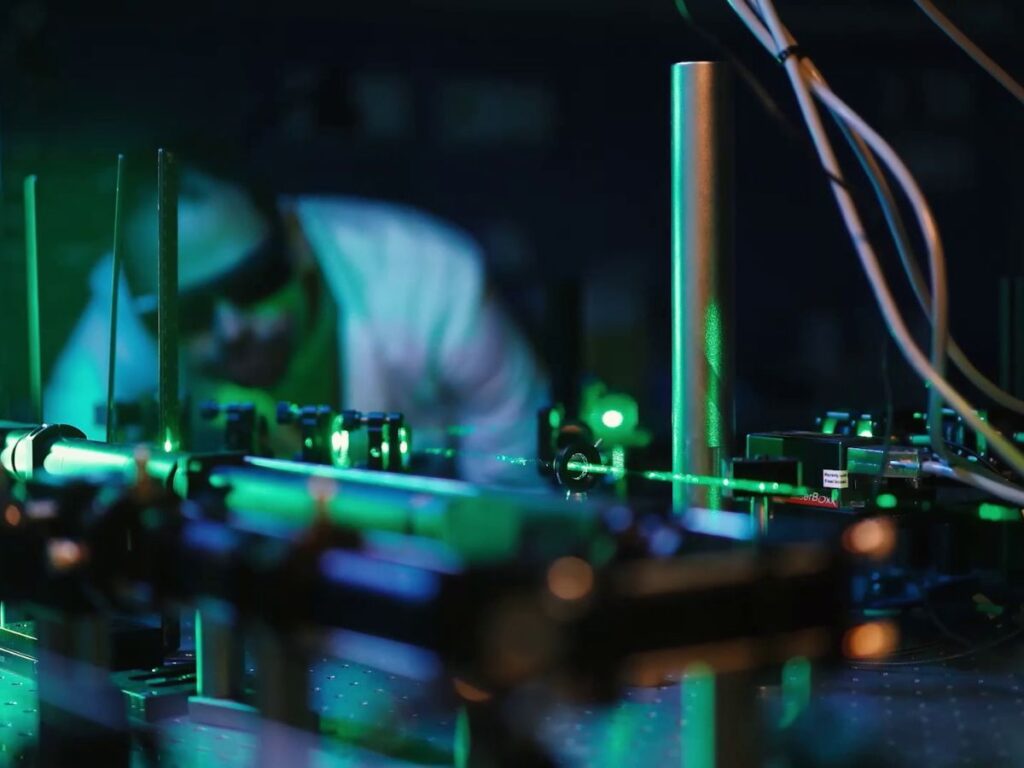These discoveries could be applied to the field of personal growth and the enhancement of self-esteem
Researchers from the Neuroscience and society laboratory coordinated by Salvatore Maria Aglioti at the Istituto Italiano di Tecnologia (Italian Institute of Technology, IIT), in cooperation with La Sapienza University of Rome and the IRCCS Fondazione Santa Lucia hospital, have recently published an article in Nature’s journal Scientific Reports. Its findings suggest that, in virtual reality, embodying an omnipotent figure could increase the perception of one’s own strength and invulnerability, with possible applications in pain management and the field of personal development.
Technological advances have made it possible to develop increasingly realistic virtual characters, known as avatars. Studies conducted in the past by other research teams have shown that the specific physical characteristics of avatars can influence the perceptions and behaviour of the people who impersonate them, a phenomenon known as the “Proteus Effect” (Yee et al, 2007). This phenomenon has also been noted with real-life characters: for example, people who adopted the avatar of Albert Einstein, famous for his intelligence, tended to increase their performance in cognitive exercises (Banakou et al, 2018), while people who impersonated Sigmund Freud, renowned for his psychotherapeutic skills, were able to come up with more satisfactory solutions to their own personal problems (Osimo et al, 2015).
Based on these observations, the IIT team recruited a group of 54 volunteers, each of whom took on the guise of three different avatars: a normotype avatar, a muscular avatar and an omnipotent avatar, inspired by the representation of God in Michelangelo’s fresco “The Creation of the Stars and Plants” in the Sistine Chapel.
Two studies were performed: the first was designed to calculate the feeling of invulnerability, measured as the participants’ perception of physical danger with respect to an adverse event, and the second was conducted to understand how the volunteers perceived their physical abilities, by inviting them to estimate the maximum distance that they imagined that they could jump to avoid a danger.
Overall, the results of IIT’s research team showed an influence on the participants’ perception of their physical limitations and abilities. In particular, when impersonating the omnipotent avatar, the volunteers perceived an adverse event as less of a threat to their own safety, compared to the normal-bodied avatar. Similarly, when impersonating the omnipotent avatar, the volunteers felt that they could jump further than when impersonating the normal-bodied or muscular avatar.
“Although the participants were aware that they were in a simulation, they showed physiological and behavioural indices that suggested their feeling of empowerment derived from impersonating an agent commonly thought to be omnipotent,” said Althea Frisanco, first author of the study.
“Another interesting aspect”, continued Michael Schepisi and Gaetano Tieri, collaborators for this research study, “is that the effect could be seen not only in participants declaring themselves as Catholic-Christian, but also in those who said that they were Agnostic and even Atheist, suggesting that just an immersion in Catholic-Christian religious culture is sufficient to benefit from the qualities of omnipotence associated with God.”
Results of this type can be applied to the fields of personal growth, self-esteem enhancement and clinical rehabilitation, as well as providing an interesting contribution to the fields of anthropology and psychology.
“On one hand, exploring this type of phenomenon in people belonging to different cultures can provide important contributions in the field of anthropological and religious studies concerning the relationship of humans with the divinity,” concluded Salvatore Maria Aglioti, head of the study and coordinator of the Neuroscience and society laboratory. ”On the other hand, it is possible to imagine the implications linked to the possibility of acquiring mental properties that promote moral understanding, virtue and prosocial behaviour, through the assimilation of the properties of virtual bodies.”.
This research study was funded by the BIAL Foundation with the grant (258/20) “In God’s shoes: embodying the avatar of the supreme moral authority modulates psychophysiological indices of one’s own morality,” and it involved a collaboration between Istituto Italiano di Tecnologia (Italian Institute of Technology) and Sapienza University in Rome.
For further information: Embodying the avatar of an omnipotent agent modulates the perception of one’s own abilities and enhances feelings of invulnerability. Sci Rep 12, 21585 (2022)
Authors: Althea Frisanco, Michael Schepisi, Gaetano Tieri, Salvatore Maria Aglioti




